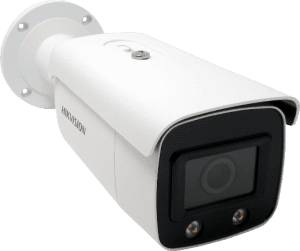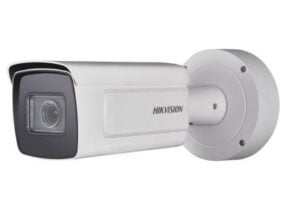CCTV License Plate Readers – Parking Enforcement Camera

License plate reader cameras employ high-resolution sensors to correctly scan the license plates of every vehicle that enters or departs your property. This facilitates searching camera footage and tracing occurrences back to individual automobiles. You may white-list and watch-list license plates, giving you ultimate control over which cars enter your area.
License plate readers (LPR) systems are often used by police stations to monitor known criminals, but they may also improve security and business efficiency for any company. Parking lot security, campuses, gated communities, residences, tolling, and hotel overstay management all benefit from LPRs.
Installing license plate readers simplifies visitor management for your company, decreases legal responsibility by giving recorded verification of license plate numbers, and aids in identifying and apprehending offenders. The license plate reader camera systems installed by Safe and Sound Security are perfectly tailored to defend your company.
LPR camera systems use high-resolution sensors and unique optical character recognition (OCR) to collect license plate numbers clearly at all times of day and night. Their fast shutter speed and headlight correction enable them to take excellent shots while avoiding glare from license plates. Flock license plate readers, Hikvision license plate readers, Perceptics license plate readers, and Genetec license plate readers are some well-known LPRs.
Is it possible for IP cameras to read license plates?

Parking Enforcement Camera
Some property managers may be curious as to whether their current IP cameras or parking lot cameras can read license plates. Most cameras that aren’t specially intended for reading license plates can’t collect plate numbers accurately. Some strong IP cameras, on the other hand, provide high resolutions that may get the job done without the need for specialized hardware and software.
Pixels per square foot (PPF)
To read license plates properly, a license plate security camera must have a particular amount of pixels per foot (PFF). A PFF of 40 or above is an acceptable starting point, while many installers prefer 50-60 PFF. Safe and Sound provides the finest license plate readers for your company, including sophisticated IP camera systems with high PPF, picture clarity, and night vision.
IP Camera Positioning
To effectively scan license plate numbers, all security cameras must be strategically positioned at the right height and angle. Our skilled installers understand how to arrange security camera systems for optimal glare and horizontal field of vision while photographing license plates.
What we recommend:

-
Excellent low-light performance via DarkFighter technology
-
Clear imaging against strong back light due to 140 dB WDR technology
-
License Plate Recognition
-
Efficient H.265+ compression technology to save bandwidth and storage
-
5 streams to meet a wide variety of applications
-
Water and dust resistant (IP67) and vandal proof (IK10)
-
High quality imaging with 4 MP resolution
Privacy concerns with the use of license plate readers
In Singapore, privacy concerns with the use of license plate readers (LPRs) include the collection and storage of personal data such as license plate numbers, vehicle make and model, and the location and time of vehicle travel. To address these concerns, the government has implemented several measures:
- Data protection: The data collected by LPRs is protected under the Personal Data Protection Act (PDPA), which governs the collection, use, and disclosure of personal data by organizations.
- Data retention policies: The government has strict policies in place for data retention, specifying the maximum period for which data can be stored and the circumstances under which data must be deleted.
- Data access: Access to the data collected by LPRs is restricted to authorized personnel only, and organizations must obtain consent from individuals before using their personal data.
- Auditing and reporting: Organizations using LPRs are subject to regular audits and must report any data breaches to the authorities.